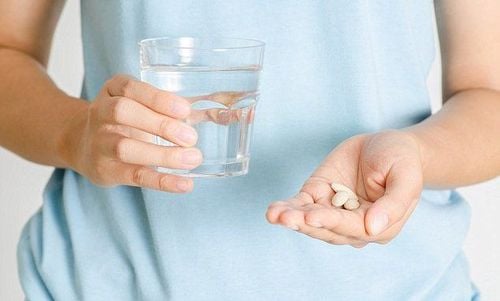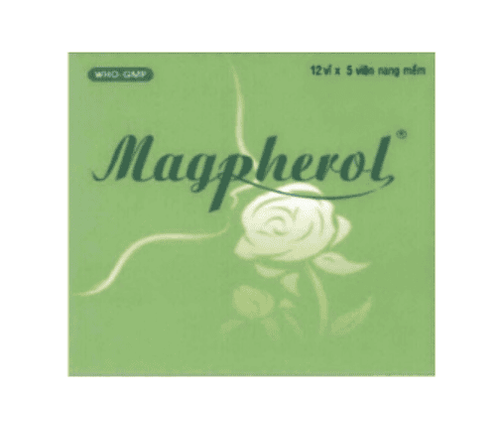This is an automatically translated article.
Vitamins are one of the important substances that support the development of mother and fetus at all stages of pregnancy. However, not all vitamins are added during this period. Therefore, when supplementing with vitamins, including vitamin E, pregnant women need to find out if they can take vitamin E while pregnant.Consuming the right nutrients is important in every stage of life, but this is especially so during pregnancy. Because, pregnant women not only nourish themselves but also nourish the fetus.
1. Benefits of vitamin E during pregnancy
Vitamin E and pregnancy are linked. An adequate amount of vitamin E is beneficial for both mother and fetus. Some of the benefits are:
Vitamin E acts as an antioxidant and protects body tissues from free radicals. These free radicals can damage cells, organs, and tissues in the body. Vitamin E helps produce precursors, which are chemicals that reduce prolactin production. This is what causes the physical and emotional symptoms of premenstrual stress. Prolactin is also a hormone that can increase at the time of ovulation. Vitamin E helps the body balance prolactin levels, thereby supporting the female reproductive system to function properly. Vitamin E maintains the structure of fats (lipids) in the body. Vitamin E helps protect against viruses and bacteria by boosting the immune system. It also helps widen blood vessels to prevent blood clots in the vessels. Vitamin E helps in the formation of red blood cells.
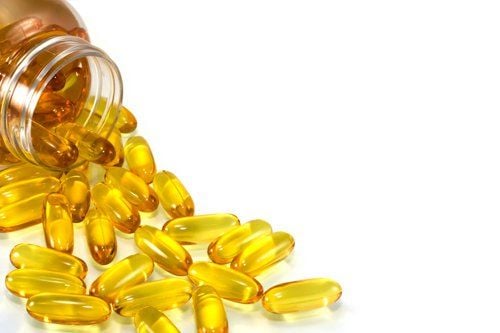
Vitamin E có lợi cho cả mẹ và thai nhi
Vitamin E oil is really good for stretch marks during pregnancy. Vitamin E is used by cells in the body to interact with each other and perform a variety of important functions. Vitamin E helps reduce the chances of miscarriage if consumed in early pregnancy.
Trắc nghiệm: Chế độ dinh dưỡng 3 tháng đầu thai kỳ của mẹ bầu như thế nào?
3 tháng đầu được coi là giai đoạn phát triển quan trọng nhất của thai nhi. Để phát triển toàn diện, thai nhi cần được cung cấp đầy đủ dưỡng chất, đặc biệt là các vi chất cần thiết. Làm bài trắc nghiệm dưới đây sẽ giúp bạn có thêm kiến thức về chế độ dinh dưỡng trong 3 tháng đầu thai kỳ.The following content is prepared under supervision of Bác sĩ chuyên khoa I, Lê Hồng Liên , Sản phụ khoa , Khoa Sản phụ khoa - Bệnh viện Đa khoa Quốc tế Vinmec Central Park
Lê Hồng Liên
Bác sĩ chuyên khoa I,
Sản phụ khoa
Khoa Sản phụ khoa - Bệnh viện Đa khoa Quốc tế Vinmec Central Park
2. The role of vitamin E in embryo development
Vitamin E plays a role in the early development of the embryonic nervous system. Vitamin E is important for the development of the eyes and the embryo's head. Vitamin E deficiency can lead to anemia. Vitamin E deficiency can also lead to an increased risk of infection. Vitamin E deficiency can lead to delayed embryo development. Vitamin E deficiency can cause neurological disorders, muscle weakness or cardiomyopathy. Many studies show that children with higher vitamin E levels at birth, have higher cognitive abilities by the time they are two years old. Vitamin E improves blood circulation in the mother. Because, the blood circulation in the pregnant mother's body is good, the blood circulation in the fetus will also be good. This implies that oxygen can reach the baby and that the baby is in a healthy uterine environment.
3. Vitamin E dosage for pregnant women
High doses of vitamin E can cause complications during pregnancy. Therefore, care should be taken with the amount of vitamin E consumed during pregnancy. Vitamin E rich foods can be used in the diet to supplement vitamin E.
A pregnant woman should not take more than 15mg of vitamin E/day during pregnancy. In case of using supplements containing vitamin E, it is necessary to consult a doctor and prescribe it.
Overdose of vitamin E during pregnancy can cause the following risks:
Using high doses of vitamin E can greatly increase the chance of birth defects. It can also increase the chance of bleeding with the risk of serious bleeding in the brain.
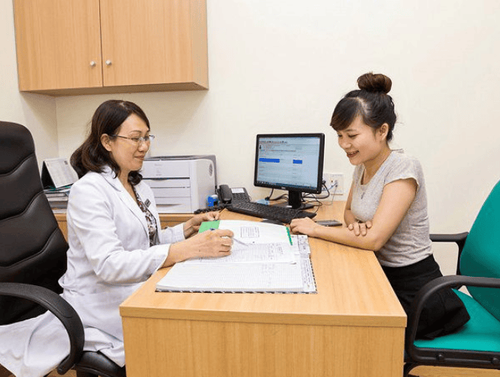
Mẹ bầu nên gặp bác sĩ để được tư vấn cách dùng vitamin E đúng cách
4. Food sources rich in vitamin E
Foods rich in vitamin E include:
Green leafy vegetables such as: spinach, broccoli, cabbage Nuts such as: peanuts, hazelnuts, almonds, sunflower seeds Vegetable oils such as: sunflower , safflower, wheat germ, corn and soybean oils Fortified foods such as: breakfast cereals, margarines and fruit juices Eggs and foods made with eggs
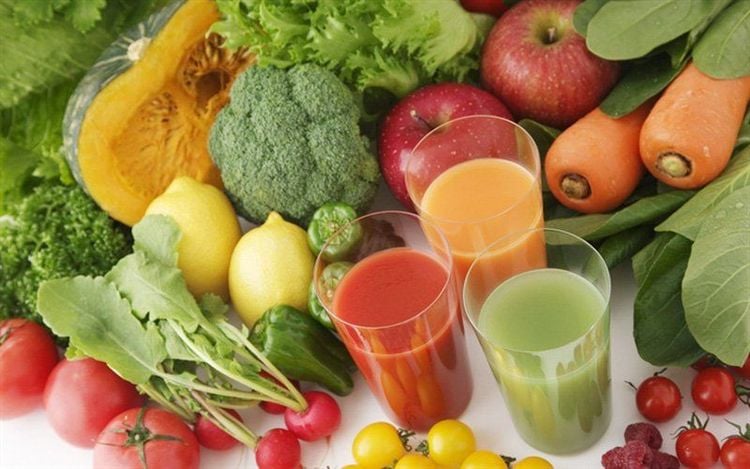
Một số loại thực phẩm giàu vitamin E
5. Should vitamin E be taken during pregnancy?
Vitamin E supplements are not recommended during pregnancy, because vitamin E supplements during pregnancy can increase the risk of preeclampsia, intrauterine growth restriction, and pre-term rupture of membranes (PROM). In addition, it is associated with common disorders in premature infants including chronic lung disease, necrotizing enterocolitis...
Vitamin E is necessary for the development of the mother and the fetus. However, to ensure enough vitamin E to meet daily needs, mothers can supplement by balancing the diet. Use vitamin E from foods. And because vitamin E is fat-soluble, it is necessary to prepare foods rich in vitamin E with oil for good absorption.
To have more basis for pregnant mothers to choose vitamin E supplements, please refer to the article Should you take vitamin E supplements before pregnancy?
For more information, please contact Vinmec Hospitals and clinics nationwide
Please dial HOTLINE for more information or register for an appointment HERE. Download MyVinmec app to make appointments faster and to manage your bookings easily.
Reference source: healthline.com; who.int
MORE:
The link between vitamin E and fertility Notes about vitamin E supplements during pregnancy Vitamin E - The basics to know









